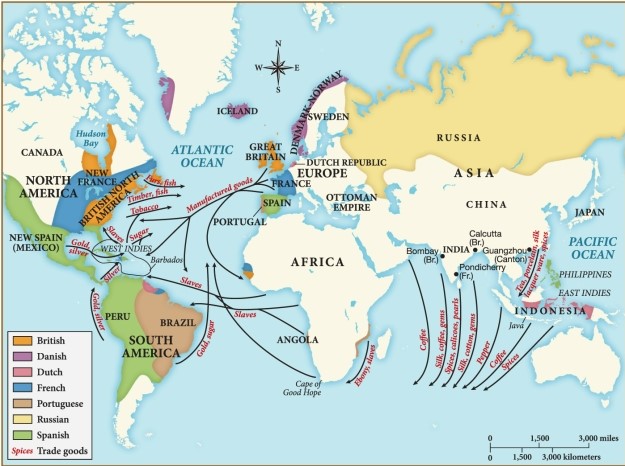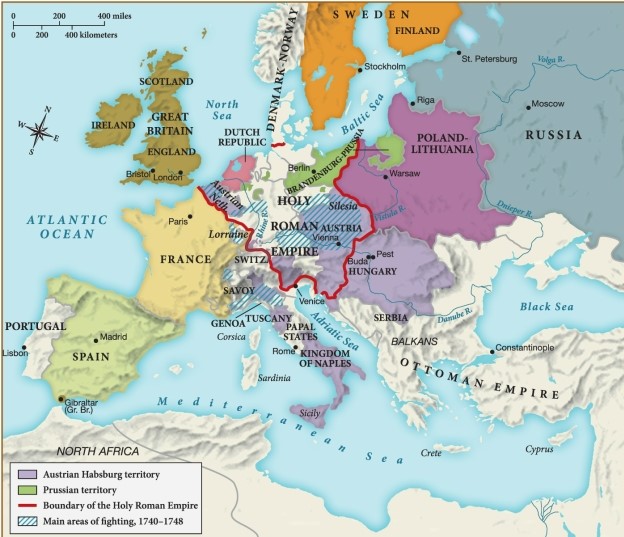Exam 17: The Atlantic System and Its Consequences, 1700-1750
Exam 1: Early Western Civilization, 400,000-1000 B.C.E65 Questions
Exam 2: Near East Empires and the Reemergence of Civilization in Greece, 1000-500 B.C.E64 Questions
Exam 3: The Greek Golden Age, C 500-C 400 B.C.E65 Questions
Exam 4: From the Classical to the Hellenistic World, 400-30 B.C.E65 Questions
Exam 5: The Rise of Rome and Its Republic, 753-44 B.C.E64 Questions
Exam 6: The Creation of the Roman Empire, 44 B.C.E-284 C.E65 Questions
Exam 7: The Transformation of the Roman Empire, 284-600 C.E64 Questions
Exam 8: The Heirs of Rome: Islam, Byzantium, and Europe, 600-75065 Questions
Exam 9: From Centralization to Fragmentation, 750-105065 Questions
Exam 10: Commercial Quickening and Religious Reform, 1050-115065 Questions
Exam 11: The Flowering of the Middle Ages, 1150-121565 Questions
Exam 12: The Medieval Synthesis and Its Cracks, 1215-134065 Questions
Exam 13: Crisis and Renaissance, 1340-149265 Questions
Exam 14: Global Encounters and the Shock of the Reformation, 1492-156065 Questions
Exam 15: Wars of Religion and the Clash of Worldviews, 1560-164865 Questions
Exam 16: Absolutism, Constitutionalism, and the Search for Order, 1640-170065 Questions
Exam 17: The Atlantic System and Its Consequences, 1700-175065 Questions
Exam 18: The Promise of Enlightenment, 1750-178965 Questions
Exam 19: The Cataclysm of Revolution, 1789-179965 Questions
Exam 20: Napoleon and the Revolutionary Legacy, 1800-183065 Questions
Exam 21: Industrialization and Social Ferment, 1830-185064 Questions
Exam 22: Politics and Culture of the Nation-State, 1850-187065 Questions
Exam 23: Empire, Industry, and Everyday Life, 1870-189065 Questions
Exam 24: Modernity and the Road to War, 1890-191465 Questions
Exam 25: World War I and Its Aftermath, 1914-192965 Questions
Exam 26: The Great Depression and World War II, 1929-194565 Questions
Exam 27: The Cold War and the Remaking of Europe, 1945-1960s64 Questions
Exam 28: Postindustrial Society and the End of the Cold War Order, 1960s-198965 Questions
Exam 29: A New Globalism, 1989 to the Present65 Questions
Select questions type
Why did slavery based on racist ideology not develop until more than 150 years after the first African was transported to the Americas? How did economic changes affecting Europe and the colonies in the seventeenth and eighteenth centuries affect the development of this ideology?
(Essay)
4.8/5  (41)
(41)
This map of European trading patterns c. 1740 demonstrates that, by the middle of the eighteenth century,

(Multiple Choice)
4.8/5  (40)
(40)
How did the gender imbalance in the colonies increase the risks a European woman faced if she immigrated to the colonies as an indentured servant?
(Essay)
4.8/5  (41)
(41)
Which of the following was a consequence of the early-eighteenth-century consumer revolution in Europe?
(Multiple Choice)
4.8/5  (36)
(36)
How did improvements in agriculture and the decline of the plague pave the way for a consumer revolution in the early eighteenth century?
(Essay)
4.8/5  (41)
(41)
Why did clothing develop special importance in eighteenth-century cities?
(Multiple Choice)
4.8/5  (31)
(31)
Which of the following statements about Europe by 1750 is supported by this map?

(Multiple Choice)
4.9/5  (33)
(33)
In his campaign for greater toleration, French Huguenot refugee Pierre Bayle (1647-1706) published his Historical and Critical Dictionary (1697), which
(Multiple Choice)
4.8/5  (35)
(35)
What lasting impact did the slave trade and the plantation system have on Europe?
(Multiple Choice)
4.8/5  (28)
(28)
Why did plantation slavery replace indentured servitude as the major economic anchor of the Atlantic system?
(Multiple Choice)
4.8/5  (30)
(30)
What factors contributed to Britain's agricultural revolution in the 1700s?
(Multiple Choice)
4.9/5  (34)
(34)
Why was the 1722 Table of Ranks an important step toward Russian royal absolutism?
(Essay)
4.8/5  (42)
(42)
By the eighteenth century, many Europeans began to try to provide a rationale for the institution of slavery based predominantly on what grounds?
(Multiple Choice)
4.8/5  (43)
(43)
In the Act of Union of 1707, Scottish Protestant leaders abolished the Scottish Parliament and agreed to obey the Parliament of Great Britain
(Multiple Choice)
4.9/5  (27)
(27)
What did critics of the Enlightenment find so dangerous about the new intellectual movement?
(Multiple Choice)
4.9/5  (48)
(48)
What determined the balance of white and Black populations in each of the New World colonies?
(Multiple Choice)
4.8/5  (26)
(26)
How did the French government respond to Voltaire's Letters Concerning the English Nation, published in the early 1730s?
(Multiple Choice)
4.9/5  (36)
(36)
Explain the relationship between the Atlantic system and the development of consumer society.
(Essay)
4.9/5  (34)
(34)
Showing 41 - 60 of 65
Filters
- Essay(0)
- Multiple Choice(0)
- Short Answer(0)
- True False(0)
- Matching(0)